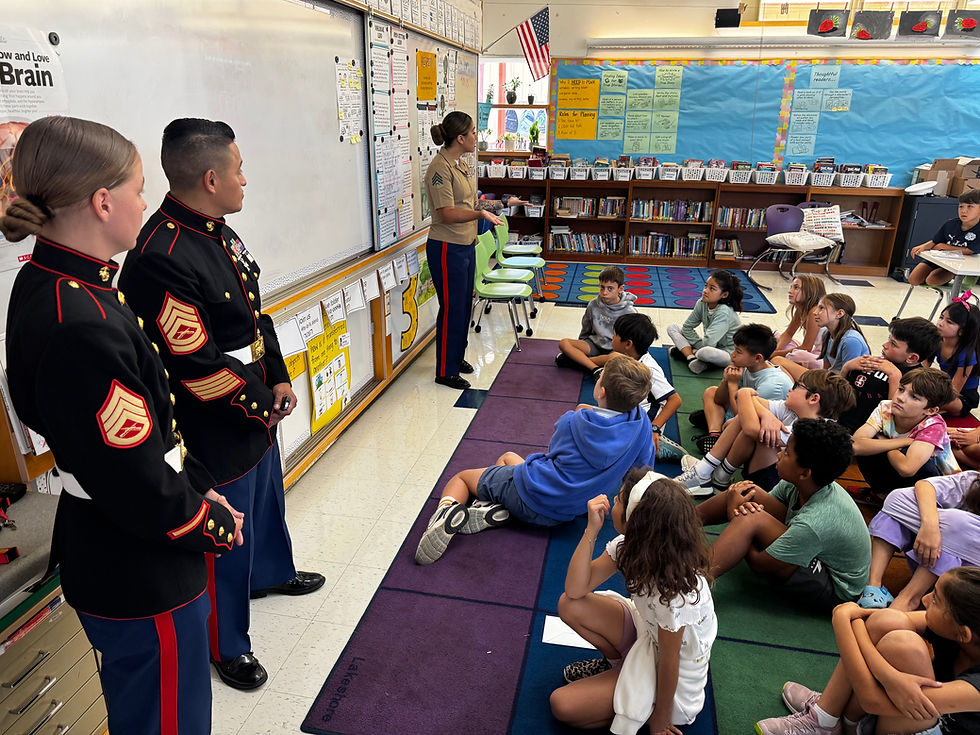A Timeless Sacrifice: Reflecting on the End of the Battle for Iwo Jima
- James Brown

- Mar 16, 2023
- 3 min read

Greetings Marines and Friends of the Corps!
Here at Wine Country Marines, while we celebrate our shared values and camaraderie, we are reminded of the legacy that has been bestowed upon us by the brave men who fought for our country. The Wine Country Marines would like to honor this legacy, forged by the great Marines who came before us. In particular, we want to pay tribute to those who fought and won the battle for Iwo Jima during World War II. Today, March 16th, marks the 77th anniversary of end of the battle.
The west Pacific volcanic island of Iwo Jima was a formidable challenge for the U.S. military. The Japanese had fortified the island above and below ground, including a network of caves, and had 21,000 soldiers defending it. The Americans began applying pressure to the Japanese defense of Iwo Jima in February 1944, when B-24 and B-25 bombers raided the island for 74 days straight. It was the longest pre-invasion bombardment of the war, necessary because of the extent of the fortifications.
Underwater demolition teams (“frogmen”) were dispatched by the Americans just before the actual invasion to clear the shores of mines and any other obstacles that could obstruct an invading force. In fact, the Japanese mistook the frogmen for an invasion force and killed 170 of them. The amphibious landings of Marines began the morning of February 19, 1945, as the secretary of the Navy, James Forrestal, accompanied by journalists, surveyed the scene from a command ship offshore.
The Marines made their way onto the island–and seven Japanese battalions opened fire, obliterating them. By that evening, more than 550 Marines were dead and more than 1,800 were wounded. In the face of such fierce counterattack, the Americans reconciled themselves to the fact that Iwo Jima could be taken only one yard at a time.
A key position on the island was Mt. Suribachi, the center of the Japanese defense. The 28th Marine Regiment closed in and around the base of the volcanic mountain at the rate of 400 yards per day, employing flamethrowers, grenades, and demolition charges against the Japanese that were hidden in caves and pillboxes (low concrete emplacements for machine-gun nests). Approximately 40 Marines finally began a climb up the volcanic ash mountain, which was smoking from the constant bombardment, and at 10 a.m. on February 23, a half-dozen Marines raised an American flag at its peak, using a pipe as a flag post. Two photographers caught a restaging of the flag raising for posterity, creating one of the most reproduced images of the war. With Mt. Suribachi claimed, one-third of Iwo Jima was under American control.
The battle for Iwo Jima was a costly one, but ultimately, the Americans emerged victorious. On March 16, with a U.S. Navy military government established, Iwo Jima was declared secured. When all was done, more than 6,000 Marines died fighting for the island, along with almost all the 21,000 Japanese soldiers trying to defend it.
As Marines, we should never forget the sacrifices made by those who came before us. The legacy of Iwo Jima and the brave men who fought there should inspire us to continue upholding the ideals of honor, courage and commitment in everything we do. Let us never forget those who fought and won the battle for Iwo Jima, and to the legacy they have bestowed upon us. And for those that never returned home, let's remember to live our lives in a manner worthy of their sacrifices.










Comments